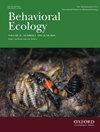性欲低下,雌蝇挑三拣四真菌感染是雄性家蝇的生殖障碍
IF 2.2
3区 环境科学与生态学
Q2 BEHAVIORAL SCIENCES
引用次数: 0
摘要
许多昆虫病原真菌会导致昆虫寄主感染致死。人们对昆虫在生命衰退期感染致死性疾病时生殖投资的变化知之甚少。生命史理论认为,宿主会将资源投入到对抗疾病或增加繁殖上。在此,我们研究了家蝇成虫的生殖生活如何受到其宿主特异性真菌病原体 Entomophthora muscae 的影响。具体来说,我们测试了长达一周的感染如何改变成年处男家蝇的交配行为。我们发现,病原体会明显降低雄性的性欲;这种影响在感染过程中会越来越强。此外,雌蝇选择受感染雄蝇的可能性明显降低,从而降低了雄蝇的交配成功率。此外,我们还评估了精子活力,以了解单性雌性与受感染雄性交配的生殖成本。分析表明,精子质量在感染后三天就会下降。这些结果表明,E. muscae在野生种群中的感染率接近100%,它对雄性家蝇的终生繁殖造成了严重损失。了解宿主与病原体之间的相互作用如何影响宿主的生活史,对于阐明病原体毒力对宿主产生的所有负面影响至关重要。本文章由计算机程序翻译,如有差异,请以英文原文为准。
Low sex drive and choosy females: Fungal infections are a reproductive downfall for male house flies
Many entomopathogenic fungi cause infections that kill their insect host. Little is understood about changes in the reproductive investment that occur during an infection by a lethal disease over the waning life of an insect. Life history theory suggests the host will respond by investing resources into fighting the disease or increasing reproduction. Here, we investigate how the reproductive life of adult house flies, Musca domestica, is impacted by its host-specific fungal pathogen, Entomophthora muscae. Specifically, we test how the week-long infection alters the mating behavior of virgin adult male house flies. We find that the pathogen significantly decreases male libido; an effect which grows stronger over the course of the infection. Furthermore, females were significantly less likely to choose an infected male, reducing male mating success. Additionally, we assessed sperm viability to understand the reproductive costs for monandrous females to mate with infected males. Analyses revealed that sperm quality decreases as early as three days post-infection. These results show that E. muscae, which can have a prevalence near 100% in wild populations, causes severe lifetime reproductive costs to male house flies. Understanding how host-pathogen interactions affect host life history is crucial for elucidating all the negative effects pathogen virulence exerts on hosts.
求助全文
通过发布文献求助,成功后即可免费获取论文全文。
去求助
来源期刊

Behavioral Ecology
环境科学-动物学
CiteScore
5.20
自引率
8.30%
发文量
93
审稿时长
3.0 months
期刊介绍:
Studies on the whole range of behaving organisms, including plants, invertebrates, vertebrates, and humans, are included.
Behavioral Ecology construes the field in its broadest sense to include 1) the use of ecological and evolutionary processes to explain the occurrence and adaptive significance of behavior patterns; 2) the use of behavioral processes to predict ecological patterns, and 3) empirical, comparative analyses relating behavior to the environment in which it occurs.
 求助内容:
求助内容: 应助结果提醒方式:
应助结果提醒方式:


